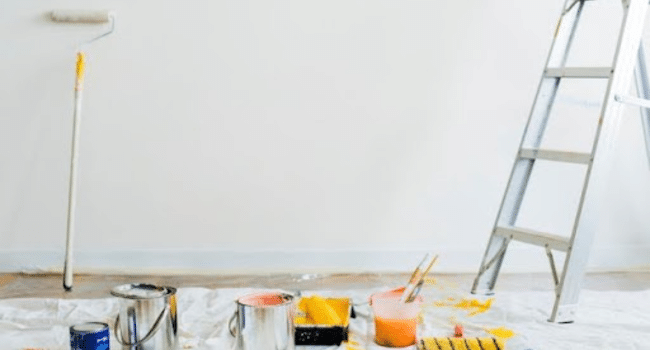Table of Contents
There are numerous ways to bring your dream home to life, and home renovation is one of the most exciting options! By renovating your house, you can tailor it to your preferences or add a new section in the house that makes you feel livelier when in there.
Additionally, renovations are essential to ensure the longevity of your home. It can help you to make your house become a place that you can enjoy for years to come and possibly pass down to future generations.
What Is The Essence of Home Renovation?
Home renovation involves the process of repairing, rejuvenating, remodeling, or enhancing the structure or appearance of your home. This typically follows a design concept tailored to the renovation needs. Additionally, it may also include expanding the existing space. For example, you may want to add another room, adding a garage, or even a swimming pool!
While a home renovation can be a wonderful opportunity to create your dream home, it’s important to know that it’s not an inexpensive endeavor. Therefore, it’s crucial to plan meticulously, especially when it comes to budgeting.
6 Essential Things to Consider Before Renovating a House?
Before diving into the actual renovation process, it’s essential to consider a few key factors to prevent unexpected costs from spiraling out of control.
1. Careful Planning
The first essential thing you should do before renovating your home, is to carefully plan the renovation project. You can start by envisioning your dream home and consulting with experts like architects or interior designers. The consultation process is crucial as it allows your ideas to take shape in concrete terms, in the form of 2D or 3D sketches.
Usually, during this stage, you’ll also discuss the materials to be used. This can be very informative for you to ensure the long-term durability of your renovated home. Always look for several references before deciding, to find the optimal balance between design and budget.
2. Clear Budgeting
Establishing a clear budget is critical to keep your renovation on track financially. Once you have a clear vision and detailed plan for your renovation, the next crucial step is to create a comprehensive budget.
If you’re working with an architect, interior designer, or contractor, they typically will include a budget plan as part of their services. If they don’t provide you with the budget sheet, make sure to ask for it —as it will need to include information such as labor, material permits, and any other important costs that you will need to cover when renovating your house. Proper budgeting will help you avoid overspending and ensure the project stays within your financial limits.
3. Timeline Management
Renovation can take longer than expected, so it’s important to set a realistic timeline from the start. You should consider factors like the complexity of the renovation, the availability of materials, and the schedules of contractors. A well-managed timeline will help prevent delays and keep the project moving smoothly.
Additionally, you should also ask the contractor to always give you an update related to the home renovation project. Clear communication between you and the contractor can ensure that if there’s any issue or delay in the renovation timeline, you will always know about it beforehand.
4. Compliance with Local Regulations
Before starting any renovation work, make sure you’re aware of local building codes and regulations. This includes obtaining necessary permits and ensuring that your renovation plans comply with zoning laws. Do keep in mind that non-compliance can result in hefty fines and even delays in project completion. So, it’s crucial to handle this aspect early in the planning process!
5. Understand the Size of Your building and Land
It’s important to have a clear understanding of your home’s building and land area before beginning your renovation project. The size of your property will significantly influence the overall renovation costs.
By familiarizing yourself with the exact dimensions of the house, you might find that a full-scale renovation is not necessary. This knowledge could allow you to avoid extensive projects, such as completely reconstructing a room which can help reduce renovation expenses.
6. Always Have an Emergency Fund
Even after you’ve established and agreed on a budget for your renovation, it’s essential to set aside a contingency fund for any unexpected expenses. Unforeseen events such as fluctuations in material prices or delays due to weather can arise during the renovation process, affecting both time and cost. To ensure everything stays on track, you should allocate an emergency fund of 20% of your main budget. This buffer will help keep the project running smoothly despite any issues down the line.
These are some of the essential factors that can help ensure your home renovation project goes smoothly, stays on budget, and results in the dream home you’ve always envisioned. Additionally, after all the renovations are completed, don’t forget to hire post-renovation cleaning services from a trusted company such as Luce. They will ensure that all leftover debris from the renovation is thoroughly removed, allowing you to enjoy your dream home right away!
